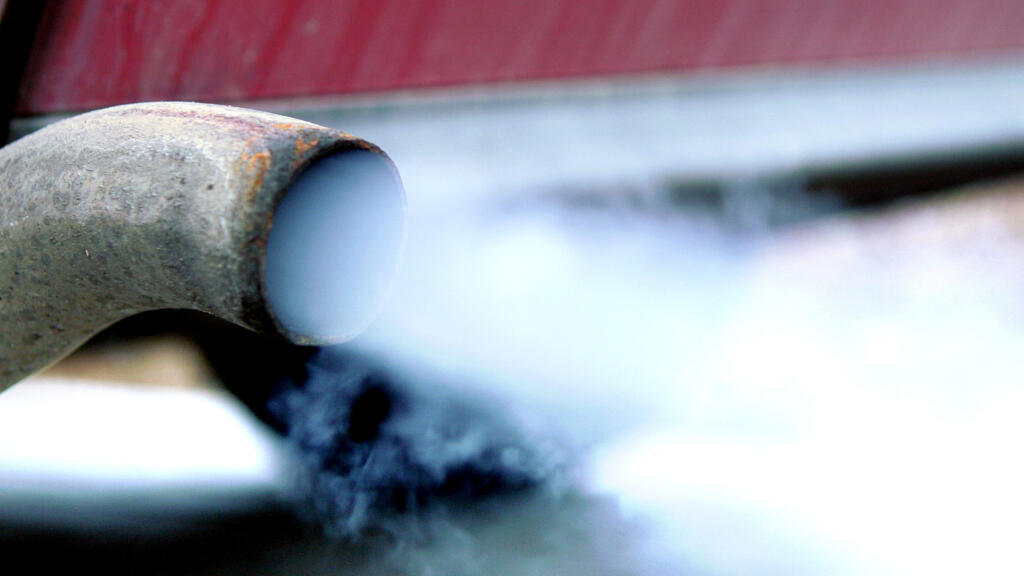
Three NGOs are taking the French state to court over its failure to remove millions of diesel cars fitted with cheating software from the roads, nearly a decade after the so-called “dieselgate” scandal first broke.
France Nature Environnement (FNE), the consumer group CLCV (Consumer Affairs, Housing and Living Environment) and international environmental law group ClientEarth on Wednesday filed a case before the Paris administrative court.
The action, revealed by Radio France and the centrist daily Le Monde, accuses the government of “serious failings” for not recalling cars with fraudulent devices, despite a constitutional duty to guarantee citizens the right to a healthy environment.
The software was designed to detect official emissions tests and switch on pollution controls only during those checks. On the road, cars emitted nitrogen oxides far above legal limits – sometimes between two and 10 times more than allowed.
These gases are linked to thousands of premature deaths.
The three NGOs want the court to recognise the state’s failure and order it to act, with a financial penalty of €50 million every six months if it does not.
Rigged diesel cars caused 16,000 deaths in France, study says
Millions of cars still on roads
The lawsuit follows a formal warning sent in July to then-transport minister Philippe Tabarot and Ecological Transition Minister Agnès Pannier-Runacher.
In the letter, seen by Radio France, FNE, CLCV and ClientEarth wrote: “Everything suggests that the French car fleet still contains a large number of vehicles fitted with illegal devices and continues to produce dangerous levels of pollution.”
In 2023, the International Council on Clean Transportation estimated that more than 3.2 million of these vehicles were still in use in France. By this year, that figure had fallen to 2.7 million, covering more than 200 different models sold between 2009 and 2019.
Volkswagen was the first carmaker exposed when the scandal broke in 2015, but inquiries later showed most major manufacturers – including Renault, PSA, Fiat Chrysler and Opel – had sold models with cheating devices.
Deadly consequences
A study published in May by the Centre for Research on Energy and Clean Air linked excess diesel emissions in France to 16,000 premature deaths since 2009.
The group warned that without corrective measures, a further 8,000 deaths and thousands of new childhood asthma cases could occur by 2040. The economic cost is estimated at €45 billion.
“These vehicles can emit between two and 10 times more nitrogen oxides than they are supposed to,” Anne Lassman-Trappier, air quality spokesperson at FNE, said.
“We have been formally urging the French authorities to act since 2023, and now we have no option left but to go to court. It is staggering that the state is prioritising the economic interests of carmakers over the health of the French people.”
EU to ban fossil fuel car sales by 2035, slash truck and bus emissions
Limited recalls
Since 2018, European Union rules have required countries to create a body to check suspect vehicles and enforce recalls. France set up the Vehicle and Engine Market Surveillance Service (SSMVM) in 2020.
But Radio France found that the authority completed only 16 tests for cheating software in 2023 and 20 in 2024. Just four car models were subject to corrective decisions, and only two recalls were actually carried out – covering a total of 16,459 vehicles.
One recall – for 12,800 Peugeot 308 cars – was announced in September, after tests showed the exhaust system allowed excess emissions over time.
“We ask owners to contact their approved dealer so our services can recalibrate the software concerned,” Peugeot said.
Other cases demonstrate how slowly action has been taken. The recall of the Opel Meriva, covering 3,659 vehicles, was not published until a year after excess emissions were detected.
In another case involving the Volvo V40, authorities decided not to extend corrective measures to other models despite identifying high nitrogen oxide levels.
These two cases were among the four models that the SSMVM says have triggered corrective decisions.
European carmakers clash over emission targets ahead of Brussels meeting
Criminal investigations
In the United States, Volkswagen was forced to buy back affected cars and pay billions in compensation soon after the scandal emerged.
In France, several criminal investigations are still underway, with prosecutors seeking fraud charges against Volkswagen, Peugeot-Citroën, Renault and Fiat Chrysler, but no trials have yet begun. All the manufacturers contest the charges.
“We cannot just wait for the courts to act,” said Lassman-Trappier. “The state must remove these vehicles from the market and make the carmakers fix them at their own expense. France has a legal duty. But by protecting the car industry, it is putting lives at risk.”
(with newswires)







